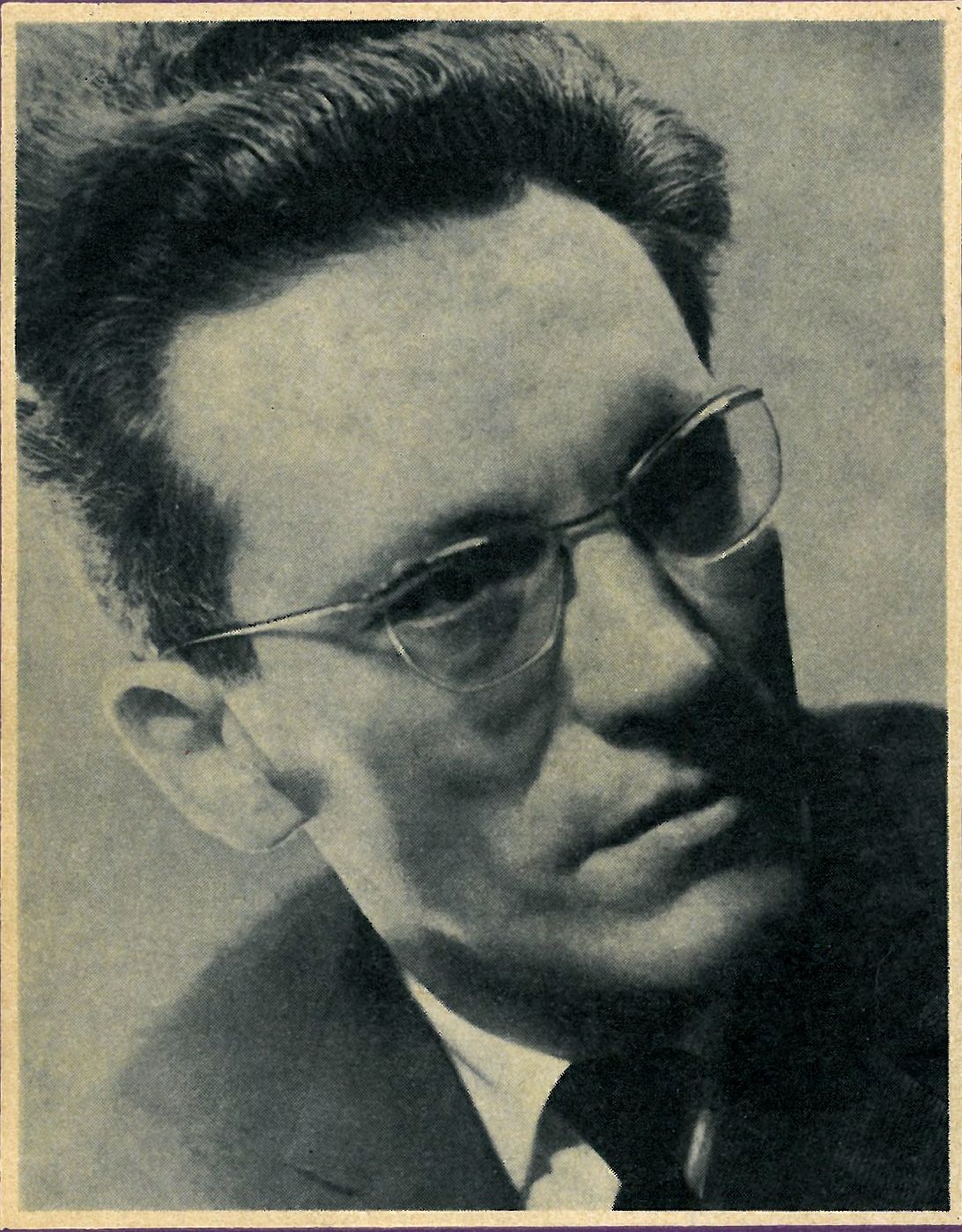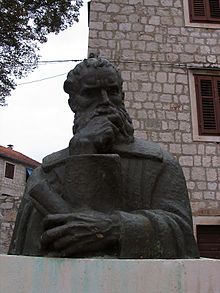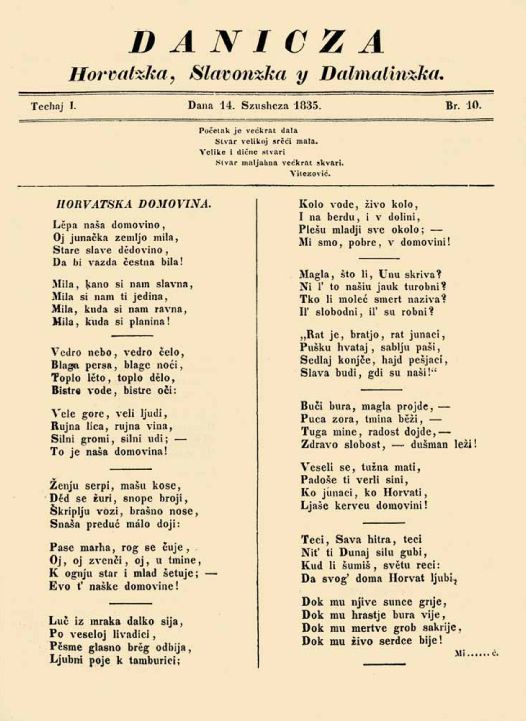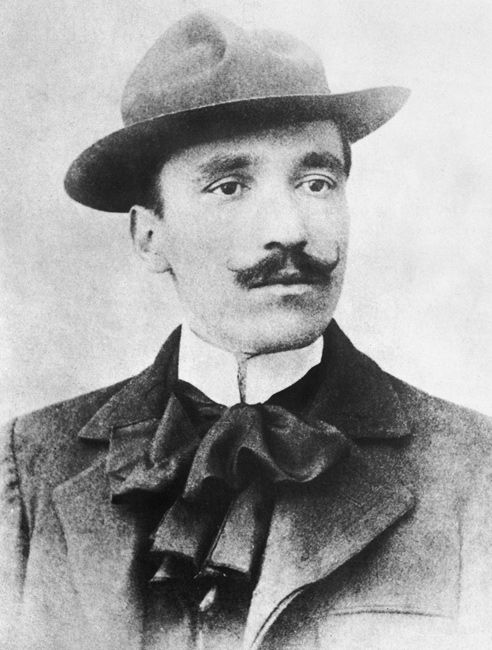Browse through Croatian history for this week; you might be surprised by what you read.
March 12
Gavrilo ‘Gajo’ Petrović was born on this day in Karlovac in 1927. A Croatian philosopher of Serbian origin and member of the Serbian Academy of Sciences and Arts, Petrović is one of the most important representatives of the practice of philosophy, with his philosophical orientation based on the opinion of revolution. Petrović was a professor of ontology, cognitive theory and logic at the Faculty of Philosophy in Zagreb from 1950 until the day he died in 1993, and taught at many universities in Europe and the USA. He was also an honorable doctor of the University of Strasbourg. A member of SANU since 1988, Petrović is one of the founders and editor-in-chief of the internationally renowned Praxis magazine (1964-1974) and co-founder and member of the Korčula Summer School Council (1964-1974). He published 14 books, including The English Empiricist Philosophy, Od Lockea do Ayera, Philosophy and Marxism, The Thought of Revolution, and In Quest of Liberty.

March 13
Petar Hektorović, a Hvar-born Croatian Renaissance and hybrid poet died on this day in 1572. A man of musical and architectural knowledge as well, he left several notable records of bugarštica (ballad poetry) and lyrical songs sung by Hvar fishermen, and his famous Tvrdalj summer residence in Stari Grad, today a unique cultural monument, was designed and built on the principle of the complete functionality of every architectural detail. His Fishing and Fisherman’s Talk (Mletci, 1568.) is a great poet's work, fishermen's eclogue, a travelogue, and a reflex and dynamic poem to his friend Jeronim Bartučević - it is a treasure of Croatian maritime and zoological terminology, which was incorporated in Croatian standard language.

March 14
Danica (Danicza Horvatzka, Slavonzka y Dalmatinzka) was the first Croatian literary and cultural list which was released on this day in 1835. Born in Zagreb, it was released as a weekly contribution to "Novina Horvatskih"; under the title "Danica ilirska” published in 1836-43, 1848-49, and 1863-67. Founded by Ljudevit Gaj, it contributed to the affirmation of the Stokavian dialect as a Croatian standard of language. The most prominent associates for Danica were Dragutin Rakovac, Ljudevit Vukotinović and the Mažuranić brothers. The song later became the anthem of Croatia.

March 15
Jasna Zlokić is a Croatia pop singer born on this day in 1955. From Vela Luka on the island of Korčula, Zlokić rose to fame in 1984 with the hit ‘Skitnica’ written by Rajko Dujmić. Zlokić performed this song at the Split Festival that year. Since then, Zlokić’s long-lasting musical career has been enhanced by over 180 humanitarian concerts, and her artistic dignity based on outstanding music quality is still maintained today. She was even the opening act for the mega-popular American rapper 50 Cent in 2007!
March 16
On this day in 1953, Josip Broz Tito arrived in the United Kingdom for his first official visit as the head of the Yugoslav state to a Western country after the Second World War.
March 17
On this day in 1914, Croatian short story writer, poet, essayist, journalist, and travelogue writer Antun Gustav Matoš died. Born in Tovarnik in Vukovar-Srijem County, Matoš was raised in Zagreb from two-years-old, and as a young adult, moved to Vienna, Belgrade (living as a cello player, journalist, and man of letters), back to Vienna, Munich, Geneva, and finally Paris where he wrote his greatest stories. In 1908, Matoš returned to Zagreb to settle. Known as a central figure of Croatian modernism, he also wrote in styles from symbolism to impressionism. His first piece of Croatian literature was "Moć savjesti" (The Power of Conscience) in 1892, which was known as the start of Croatian moderna. He died of throat cancer in 1914, having written two dozen published or unpublished works including poems, short stories, articles, travelogues, criticisms and disputes in his lifetime.

March 18
On this day in 1994 in Washington D.C., Bosnia and Herzegovina and Croatia, in the presence of US President Bill Clinton, signed an agreement (Washington Agreement) on the Muslim-Croat Federation in BiH, which later became the Dayton Agreement, one of the two entities in the former Yugoslav Republic of BiH. It was signed by Bosnian Prime Minister Haris Silajdžić, Croatian Foreign Minister Mate Granić and President of Herzeg-Bosnia Krešimir Zubak. The agreement combined the territory held by the Croat and Bosnian government forces and divided them into ten autonomous cantons, establishing the Federation of Bosnia and Herzegovina.


